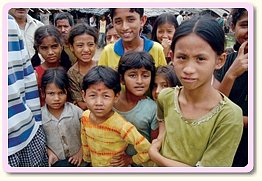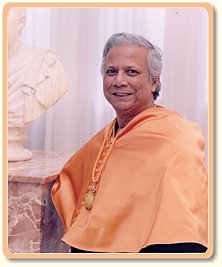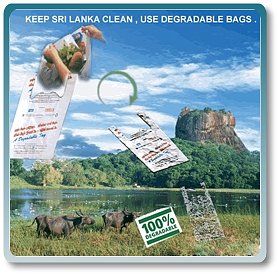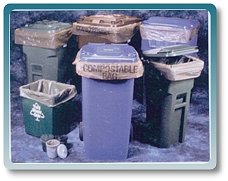|
Positive
Improvements on the Planet |
Positive News for a Better World
By Entertainment Team, Los Angeles, California, USA
(Originally in English) |
| Russia |
President
Vladimir Putin Proposes Ban on Gambling Throughout Russia |
 |
Russian President |
On October 5, Golden Year 3 (2006), Russian President Vladimir Putin introduced a ban on gambling throughout Russia by drafting a revolutionary law that proposes to close down the gaming industry throughout the country. In addition, he’d like to limit gambling to only being legal in four major districts now referred to as “Russian Las Vegases” and a few approved regional locations. According to this remarkable proposal, bookmaking, electronic casinos and Internet gambling will only be allowed in the four approved remote areas – two in central Russia, one in Siberia and one in the Russian Far East. Such legislation would perhaps help make the habit of gambling less widespread in society. A big bravo to Russia!
Reference:
http://www.kommersant.com/page.asp?id=710326
| EU |
New
Initiatives to Improve Global Pollution |
 |
 |
As a solution to global pollution in European cities, European Parliament recently recommended a series of initiatives which will directly impact town planning improvements. Areas of key interest such as public transportation, restoration of old water mains, reducing air and noise pollution, adding green spaces and providing for bicycle zones will now be supported directly through economic planning at the local level of towns throughout Europe. The hope is to improve the quality of life of all inhabitants by restoring the environment through energy efficient goals and positive city planning. Implementing these initiatives will positively impact conservation of the environment locally as well as globally. Things are looking up in Europe each and every day!
| Czech Republic and Slovakia |
Skanska,
an Environmentally Friendly Company |
Skanska is one of the world’s leading construction companies, with branches in many countries. Skanska, Czech Republic, has been awarded the prestigious Via Bona award for working together well with the environment organization, Partnerstvi Foundation, whose program “Tree of life” has been supported by Skanska. The goal of this program is to continue to plant new trees. An environmental educational program that is tailored to meet the needs of Skanska employees in the Czech Republic and Slovakia is another positive project that Skanska has supported.

Reference:
http://www.infrasite.nl/news/news_article.php?ID_nieuwsberichten=5331&language=en
| Scotland |
Scottish
Animal Welfare Law Update |
New legislation in Scotland has already had a great impact on improving and regulating animal welfare there. One of the key policies already showing positive improvements is that enforcement agencies no longer have to wait for evidence of an animal’s suffering before they can actively step in and take care of the animal. The new legislation also provides duty of care for anyone responsible for animals, penalties up to 12 months in prison and a fine of 20,000 pounds for people found guilty of animal abuse. Extending compassion toward animals through legislation is becoming more and more evident worldwide.
Reference:
http://www.advocatesforanimals.org/
| USA |
Real
Spark of Hope Brought to Nepal through US Resettlement Offer |
In efforts to relieve the refugee situation in Eastern Nepal, the US government recently offered to resettle up to 60,000 Bhutanese refugees who have been living in refugee camps for over 16 years. Canada and Australia are lending their support as well in the hopes of providing a real solution to aid the refugees in rebuilding their lives and giving them an opportunity to realize their hopes and dreams. Throughout Asia and the Near East, USAID ♥♥♥♥♥ is an American organization that strives to provide humanitarian assistance by facilitating programs which encourage long-term international peace. In Nepal, USAID is working jointly with the government on five key areas: Health and Family Planning, Democracy and Governance, Promoting Peace, Improving Agriculture & Natural Resources, and Maximizing the Use of Hydropower.
 |
 |
Bhutanese children born in refugee camps in Nepal are deprived of their nationality. |
Bhutanese refugees. |
References:
http://www.usaid.gov/locations/asia_near_east/about.html
http://www.unhcr.org/cgi-bin/texis/vtx/news/opendoc.htm?tbl=NEWS&id=45262b462 http://www.irinnews.org/report.asp?ReportID=55880&SelectRegion=Asia http://pdmin.coedmha.org/apdr/index.cfm?action=process3&Sub_ID=149&news=20823
| Bangladesh |
Bangladesh
Noble Peace Winner Will Use Prize to Help the Poor♥♥♥♥♥♥ |
 |
Mr. Muhammad Yunus |
Mr. Muhammad Yunus, the 2006 Nobel Peace Award winner from Bangladesh, will use proceeds from the award, 10 million Swedish kronor (1.4 million US dollars) to further humanitarian efforts. Greatly inspired, he told reporters: “I am so, so happy, it’s really a great news for the whole nation.” In his hopes to spread peace by ending poverty he announced that he plans to establish a company that will make inexpensive, high nutritional food for the poor and the rest of the award monies will be used to create an eye hospital for the poor in Bangladesh.
We would like to extend our sincere “Congratulations” to Mr. Yunus and express our appreciation for his continual commitment to peace and for inspiring others to follow his noble example.
Reference:
http://edition.cnn.com/2006/WORLD/europe/10/13/nobel.peace.winner.ap/index.html
| Worldwide |
Banning
the Use of Plastic Bags and Encouraging Environmentally Friendly Bags |
Actively encouraging recycling and in some countries a tax
on plastic bags continues to help beautify the environment worldwide and
save the lives of our ocean friends such as whales, seals, turtles and
other marine animals. Reusable, environmentally friendly bags are a wonderful
alternative. Some of the countries that have banned the use of plastic
bags or introduced programs to greatly reduce their use while raising
funds to promote environmental solutions include: Australia, Bangladesh,
Ireland, Italy, India, South Africa and Formosa. ![]()
|
Reference:
http://seattlepi.nwsource.com/national/182949_bags21.html http://news.bbc.co.uk/2/hi/europe/2205419.stm
| << | Contents | >> |
| Refer
this page to friends |
||
 Degradable
bags
Degradable
bags
